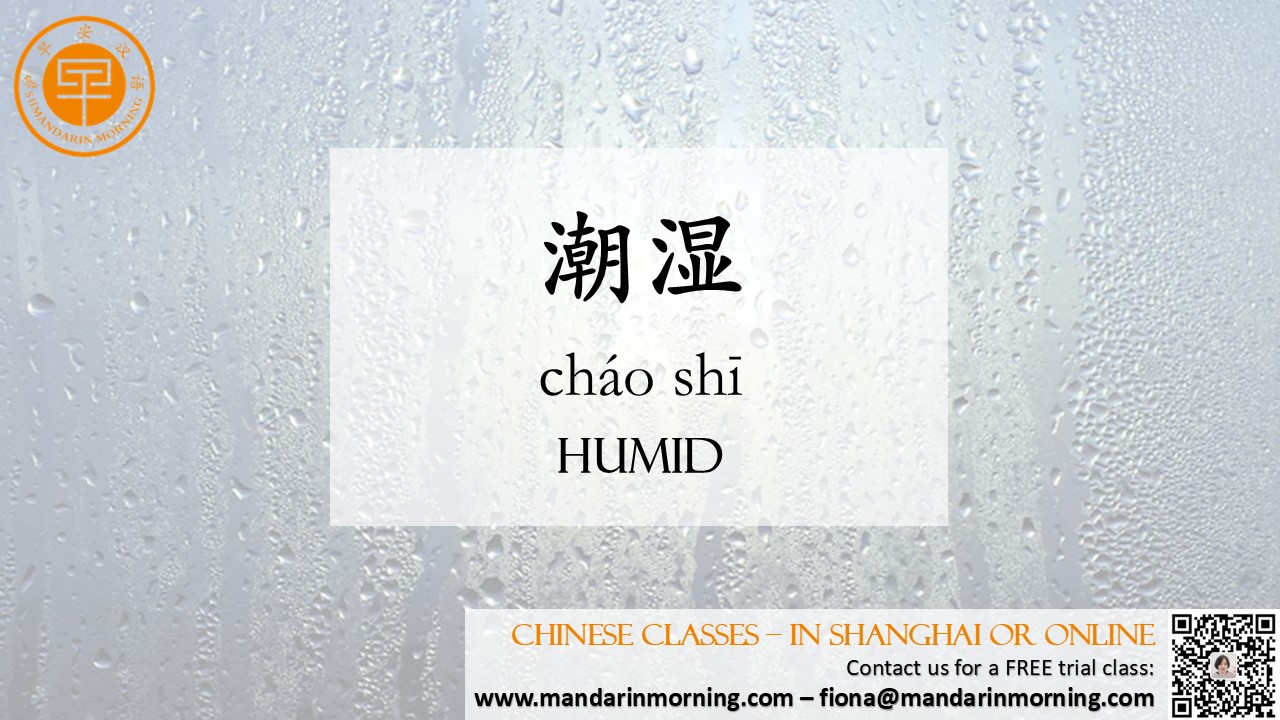When summer arrives, one of the most noticeable changes in the air is the increase in humidity. In Chinese, we call it “潮湿” (cháoshī), a term that perfectly captures the feeling of moisture lingering in the atmosphere. While some may find it challenging, the humid weather also brings with it a unique set of experiences and cultural insights that are worth exploring. Understanding Humidity in Chinese The word "潮湿" (cháoshī) is composed of two characters: "潮" (cháo), which means "tide" or "moist," and "湿" (shī), which means "wet." Together, they describe the damp and sticky feeling that often accompanies hot summer days. In Chinese conversations, you might hear phrases like "今天很潮湿" (jīntiān hěn cháoshī), which translates to "Today is very humid." Another related term is "湿度" (shīdù), which means "humidity." You can use it in sentences like "湿度很高" (shīdù hěn gāo), meaning "The humidity is very high." These words are essential for anyone learning Chinese, as they help describe the environment and weather conditions accurately. The Comforts of Humid Weather Despite its reputation for making things feel sticky, humid weather has its own unique comforts. In many parts of China, especially in the south, people have adapted to the humidity by developing various ways to stay cool and comfortable. One such method is using "竹席" (zhúxí), a traditional bamboo mat that provides a cool surface to sleep on during hot and humid nights. The word "竹" (zhú) means "bamboo," and "席" (xí) means "mat" or "matting." Another cultural adaptation is the use of "凉茶" (liángchá), a type of herbal tea that is believed to help reduce internal heat and combat the effects of humidity. "凉" (liáng) means "cool" or "cold," and "茶" (chá) means "tea." These teas are often made from a blend of herbs and are a popular beverage during the summer months. Humidity and Traditional Chinese Medicine In Traditional Chinese Medicine (TCM), humidity is considered one of the "six evils" (六邪 liù xié) that can affect the body. However, it is also seen as a natural element that can be balanced through proper care. During humid weather, TCM practitioners often recommend eating foods that help clear "湿气" (shīqì), or "dampness," from the body. Some of these foods include "冬瓜" (dōngguā), or "wax gourd," and "赤小豆" (chìxiǎodòu), or "red adzuki beans." These foods are not only healthy but also deeply rooted in Chinese culinary culture. For example, "冬瓜汤" (dōngguā tāng), or "wax gourd soup," is a light and refreshing dish that is perfect for humid days. The word "汤" (tāng) means "soup," and this dish is often enjoyed for its cooling properties. Embracing the Humidity While some may see humidity as an inconvenience, it is also an opportunity to embrace the unique aspects of life in China. From the traditional practices of using bamboo mats and herbal teas to the cultural significance of certain foods, the humid weather offers a chance to delve deeper into Chinese culture and language. So, the next time you feel the dampness in the air, remember that it is not just a weather condition but a part of the rich tapestry of life in China. Embrace the "潮湿" (cháoshī) weather, explore the cultural adaptations, and perhaps even try some "凉茶" (liángchá) or "冬瓜汤" (dōngguā tāng) to stay cool and comfortable. After all, every season has its own beauty, and humid weather is no exception. |